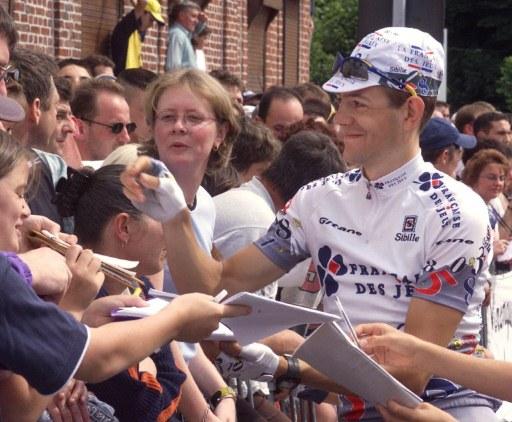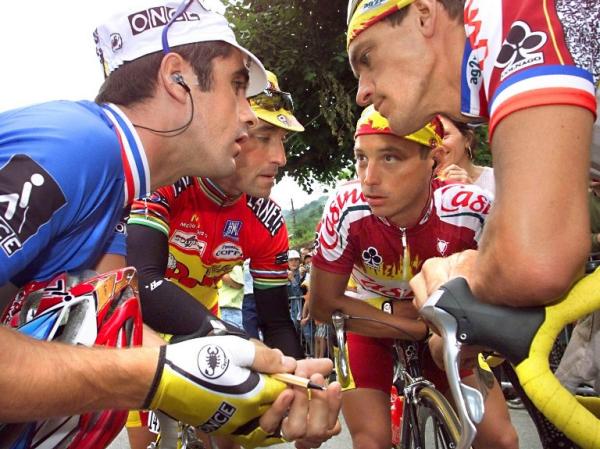Bassons rejects Jalabert's EPO defence
Frenchman concerned by doping in current peloton


Christophe Bassons has dismissed Laurent Jalabert’s tentative defence against allegations that he tested positive for EPO during the 1998 Tour de France and said that he could not have been injected with the substance without his knowledge.
After viewing documents from a French Senate commission into anti-doping, LÉquipe reported on Tuesday that a retrospective analysis of a Jalabert sample from the 1998 Tour demonstrated that he had taken EPO.
When Jalabert was questioned by the Senate commission last month, he was evasive, saying that he couldn’t “firmly say” that he had never taken illegal substances, adding that “The doctor took care of us, for our recovery, but we didn’t really know what it was.” Bassons, who raced in the peloton in the late 1990s, rejected Jalabert’s defence.
“No, honestly, I don’t believe it. I don’t believe it, all the more so because riders knew what products they were taking at the time,” Bassons told RTL. “And then, above all, there’s the effect of the product. When you take EPO, it’s not like you’re taking a bit of sugar. The effect is enormous. And then there’s the varying haematocrit level. when you find yourself with a haematocrit of 60 percent, I think that you have to ask yourself questions about the nature of the products that you’re taking.”
Bassons famously refused to partake in the organised doping programme in place on the Festina team in the late 1990s and his outspoken stance against doping subsequently contributed to shortening his career. He found Jalabert’s supposedly blind trust in his team doctors to be implausible.
“It’s clear, you automatically know what you’re taking when they give you an intravenous or intramuscular injection,” Bassons said. “What’s more, if you’re minimally intelligent, you would ask to see the phial.”
Bassons believes that Jalabert’s refusal to admit culpability stems partly from a belief in the law of silence and partly in a bid to protect his commercial interests. “The law of silence, in any case, is a system that has always reigned in this milieu,” Bassons said. “You also have to take into consideration his position as a pundit with France Télévisions [Jalabert has stepped down from the channels Tour coverage – ed], as a former coach of the national team… Automatically, it’s complicated.”
Get The Leadout Newsletter
The latest race content, interviews, features, reviews and expert buying guides, direct to your inbox!
The Senate Commission is set to release its full report on July 18, but Bassons cautioned against concentrating exclusively on past transgressions and expressed doubts about certain elements of the contemporary peloton. He warned that the spectre of organised doping is still present in the sport.
“In the end, I always knew the truth,” Bassons said. “But the past remains the past. I don’t want people to focus on the past on and close their eyes to the present, which worries me.
“Unfortunately, when you see the physiology of certain riders who are going to start this year’s Tour de France, you have to ask yourself questions. There are still doping problems in cycling. There’s organised doping in some teams, in my opinion. There are a lot of individuals also who are doping. I would like that someone finally came up with a report on the real health of French cycling.”